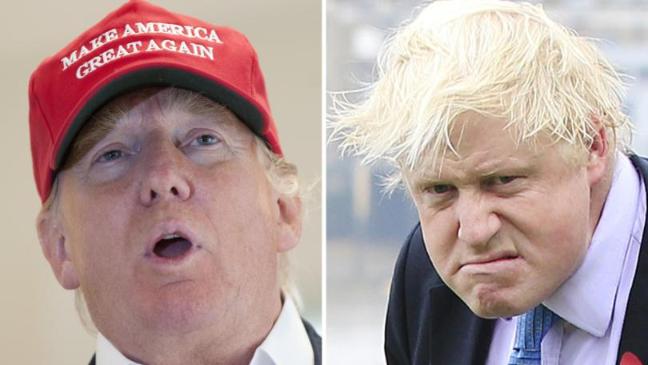
What is happening in England with Brexit and the United States with the Republican candidacy is evidence of populism, but with an interesting addition: the working class, unemployed, and marginalized of both countries have been captained by two elitist millionaires who make no scruple of stoking their frustrations, resentments, and fears.
Boris Johnson, the leader of Brexit (who surprisingly renounced his aspiration to become prime minister), a personage educated in Eton and Oxford, with exquisite conservatism and a network of privileged contacts, could hardly appear less like a strongman of the dispossessed. And in the United States, the leader who has achieved the support of millions of the dispossessed – with his promises to build a wall along the Mexican border, dissolve free trade agreements and arm the whites against the Muslims – is none other than the hotel and casino magnate Donald Trump.
The vast majority of those who voted for Brexit are poor whites, with little education, over 30 years of age, and in large part displaced or threatened by technological change. (On the contrary, the more educated, young, and confident in their capacities overwhelmingly opted to stay in the European Union.) The base that supports Trump has a similar profile: working-class whites or the unemployed; people who are afraid, under-educated and full of prejudice against Hispanics and Asians; those who support a ban on imports from China, Vietnam or Mexico (the profile of Trump’s followers is not very distinct from that of those who voted for Bernie Sanders).
The central message of Johnson and Trump’s populism is to recuperate the independence of their countries by closing their borders. Their vague promise is to rebuild a world of yesteryear, a world that in their memory was better than this one, without competition or foreigners. In the case of Britons of an advanced age, Brexit sold the promise of reinvigorating industries that are now dead and the glories of what was a grand empire. In the case of the North Americans, the dream is to return to a world before the arrival of Japanese and Korean cars and household appliances and, of course, before everything came from China, putting in doubt the predominance of the label “Made in the USA.” These promises are, of course, a fraud.
The populism of Latin America, usually of the left, also stimulates and exploits the resentments, fears, and worries of large groups of low-income people. But it has one large difference with the right-wing populism of the U.S. and England. Its leaders – Perón, the Kirchners, the cronies of Chávez and Madura, Lula’s people – don’t arrive to power wealthy although, yes, they do leave government as millionaires. In fact, those regimes are a trampoline to create new dominant classes that compete in wealth and power with their predecessors.
Despite the fact that it is currently in retreat, nothing guarantees that populism won’t again enjoy new opportunities in Latin America. Economic problems, social inequality and, of course, the examples of Trump and Brexit create fertile ground.

Leave a Reply
You must be logged in to post a comment.